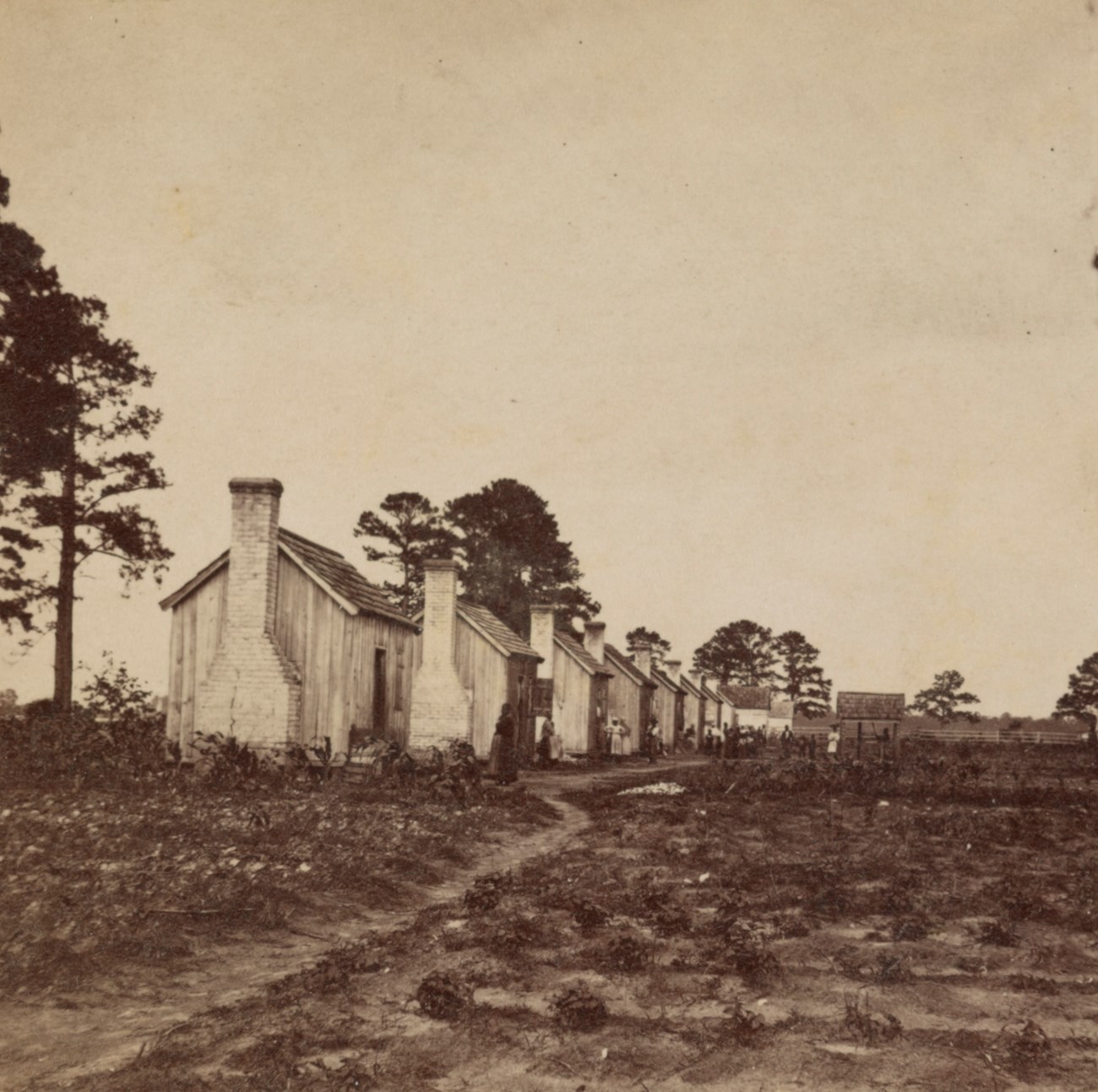Part of a series of articles titled The Port Royal Experiment.
Article
Land Ownership: An Effect of the Port Royal Experiment

LOC
In the summer of 1861, well before the Battle of Port Royal took place, Congress passed a series of laws that set the stage for the redistribution of property around Beaufort over the following years. The Confiscation Act of 1861 authorized the government to confiscate as “contraband of war” any property belonging to people who supported secession and the Confederacy. This included both land and enslaved people, who became known as “contrabands.” In August of that year, the Revenue Act levied the first income taxes and established tariffs to help fund the war effort. This set the stage for land reform in the Sea Islands.
The position of the United States government and President Abraham Lincoln was that secession was not legal. This has been the popular argument in favor of the Union cause at the outset of the war, and the preservation of the Union was a major motivation for enlistment for many soldiers. But this position had an unintended consequence on property ownership around Beaufort. Legally, citizens in the seceded states like South Carolina remained US citizens and were subject to the Confiscation Acts and Revenue Acts. Therefore, they owed taxes to the federal government. In most places across the Confederacy, this was not something that Congress could enforce. But on the Sea Islands around Beaufort, where nearly all the property had been abandoned, those properties were subject to The Beaufort District Tax Auctions, which began in 1863.
In many cases, formerly enslaved people were able to use the money they earned from wages to purchase small plots of land across the islands. These were generally small farm plots of just a few acres. But others were able to purchase larger plots, or even major properties in Beaufort. Most famous of those purchasing property during the tax auctions was Robert Smalls, who used funds from the capture of the Planter to purchase the property he and his mother had been enslaved in before the war.
In Savannah in 1865, General William T. Sherman issued Special Field Orders No.15, which authorized the confiscation of property up and down the coast of North Florida, Georgia, and South Carolina for redistribution in forty-acre plots to Black families. Less than a year later, President Andrew Johnson rescinded this order and most of the properties were returned to their prewar owners. But around Beaufort the situation was different. Because the property had been abandoned and legally auctioned, many of the Black residents around Beaufort were able to maintain their properties for generations. Today, some of their descendants continue to own land across the region – property that is today referred to as “heirs property.”
As Black Sea Islanders earned wages and acquired property – a new need began to emerge: access to a quality education.
Last updated: March 7, 2025
